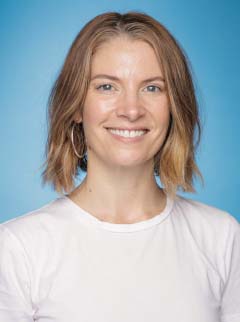PolyAcademics
Head of Upper School
WELCOME! Considering Poly For Your Family?
WELCOME TO UPPER SCHOOL
To be a teenager is a demanding endeavor. The world is fully exposed through media, communication, and technology; and while this exposure serves for the rapid consumption of information, it leaves a burden on the participant—how do I separate fact from opinion? How does this inform my own view of myself? Am I truly connected to people in the world around me?
The act of being human is the search for meaning and connection. The lessons learned in high school, in and out of the classroom, are the foundation for how we will approach future success and challenges. At Poly, we strive to support all of our students through the beginning of their life’s journey to adulthood.
In the Upper School, students engage in vigorous intellectual endeavors and challenge themselves to develop the skills and master the content that will help them to innovate and chart the course of our world. Our students are leaders, change agents, scholars, and altruistic community members. The diversity of Poly Prep is unparalleled in every definition of the word; and because each of our students is a unique individual, we understand that their experiences both in school and beyond will be based on their own set of skills, interests, pursuits, strengths, and challenges. Our faculty will ask students to challenge themselves on a daily basis, to recognize their own strengths in order to help persevere through obstacles.
Current research tells us that teenagers’ brains are still in the process of development and will not fully mature until their early to mid-20s. The frontal cortex, where executive functions— assessment of risk, judgment, planning, problem-solving, self-regulation, and social interactions—are found, typically fully develops last. This means that a teenager will make decisions, plan their week, and react to stressors much differently than an adult would. We, the adults in their lives, have a responsibility to meet them where they are, understand and empathize with their approach, and be patient in how we help them to learn.
Curiosity, authenticity, and perseverance are at the core of true learning. The ancient questions “Who am I?” and “How do I live a good life?” still prevail, and the ways in which we find answers to these questions help us better understand how we contribute to our communities.

Sincerely,
Sarah Bates
Head of Upper School
